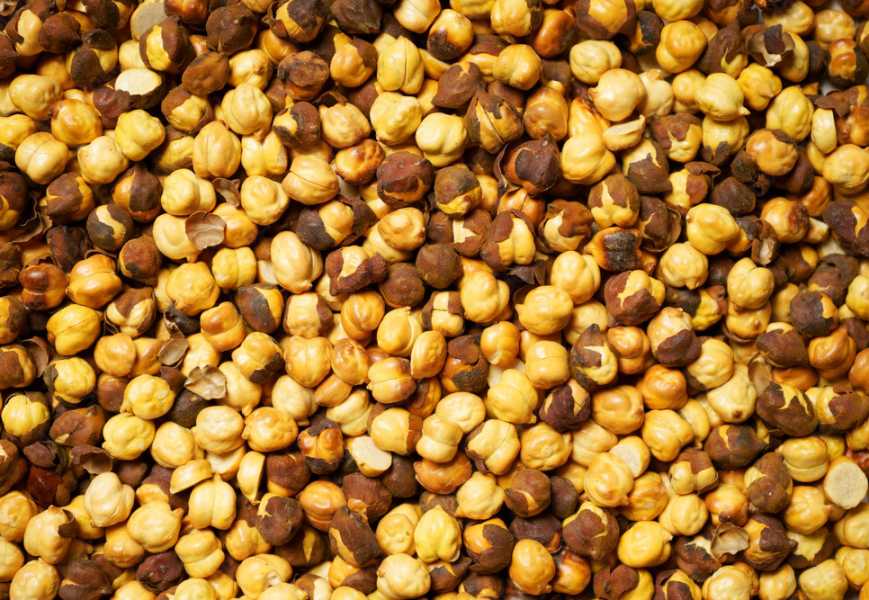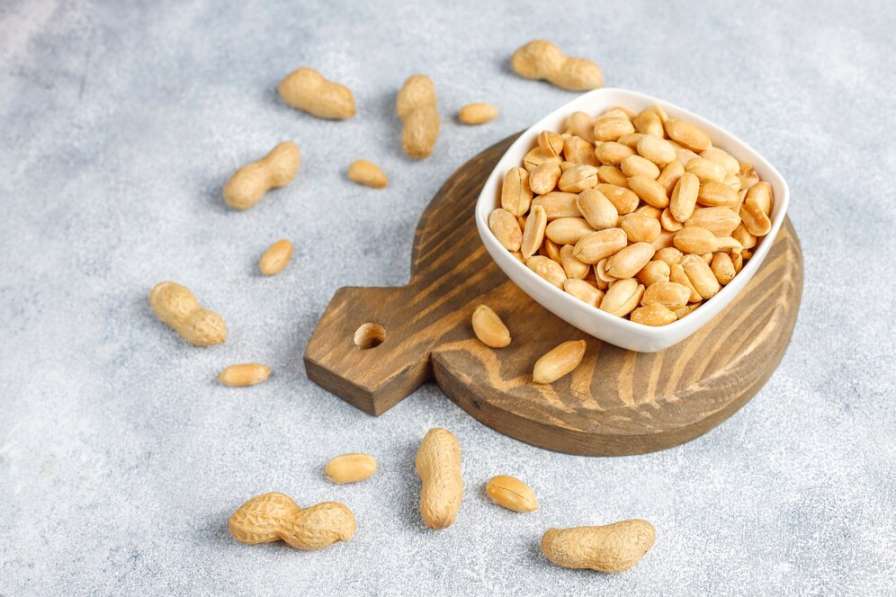Dried apricots soaked in water benefits
Dried apricots soaked in water benefits: Apricot is a small, orange and yellow fruit with an acidic taste. They are high in fibre, low in fat, and abundant in vitamins and minerals.

The following are some incredible benefits that you might not be aware of that are associated with soaking dried apricots in water. The evolution of this delicious fruit with a yellowish-orange colour is truly fascinating. The fact that they are so nutrient-dense is because they improve digestion and eye health, among the many other health benefits they offer.
In addition to having a high concentration of vitamins and minerals, dried apricots have an exceptional amount of fibre preserved throughout the drying process.
- Apricots include a variety of elements that are helpful to human health, including tartaric acid, citric acid, sucrose, dextrin, lycopene, vitamin C, quercetin, starch, and carotene. Furthermore, the mycobacterium component found in apricots is a molecule with antibacterial properties.
- There is an abundance of vitamins in soaked apricot juice (apricot soaked in sugar), which is very beneficial for oxygen metabolism in cells, respiratory disease, as well as inflammatory disorders or diseases.
- On the other hand, minerals that are found in apricots, such as calcium, phosphorus, iron, and others, have the ability to convert vitamin A. This helps the human body defend itself against attacks from free radical cells, which results in a variety of benefits.
People also read: benefits of soaked raisins you need to know
The Benefits of Dry Apricot
Apricots are extremely beneficial to your body, especially when used after soaking. So here are some amazing “dried apricots soaked in water benefits.”
1. Beneficial to the Eyes

- Dried apricots are abundant in beta-carotene, vitamin E, and vitamin A, which provide a variety of health benefits.
- According to one study, they may play an important role in preventing or treating age-related eye problems. Dried apricots include lutein and zeaxanthin, which may benefit eye health.
- These nutrients act as blue light filters, protecting the ocular tissues from phototoxicity. They may help reduce the likelihood of blindness.
2. Advantages of Dry Apricot for Skin Care

- A healthy diet is now well proven for skin health and attractiveness. Dried apricots may include several of these vital nutrients. They include beta-carotene, for example, which your body converts to vitamin A (retinol). You will have bright skin if you consume it after soaking.
- Apricots contain beta-carotene, which your body converts to vitamin A. Dried apricots are naturally high in vitamin A (retinol). This vitamin is important for skin health.
- Although you are now aware of the different benefits of apricots, it is important to note that, just like with any other food, there is a daily limit on the amount of apricot dry fruits that you can consume.
3. Enhanced Gut Health

- Apricot is rich in fibre. Fibre in the diet slows the movement of food through the digestive tract. As a result, it nourishes the good bacteria in your intestines, resulting in a healthy gut.
- They are easier to digest if used after soaking, reducing stress on your intestines. So one of the great “dried apricots soaked in water benefits” is a healthy gut.
4. Control your Blood Pressure

- Dried apricots are a good source of potassium, a mineral that has been associated with regulating blood pressure. Apricots are rich in potassium.
- One study found that eating foods high in potassium can help people with high blood pressure lower their blood pressure. A higher potassium intake reduces the risk of stroke by 24%.
5. Prevent anaemia (a deficiency of healthy RBCs).
- Low iron levels are a short-term or long-term condition that causes anaemia. Eating iron-rich foods is the most effective way to prevent and treat anaemia. Dried apricots provide iron.
- The vitamin C present in apricots is another benefit. Several studies have found that vitamin C increases iron absorption in our bodies.
- The loss of a significant amount of blood, repeated bleeding in the gastrointestinal tract, and constant inflammation are also possible causes of anaemia. Anaemia is more common in women who are pregnant or who are menstruating.
- Anaemia affects more than 25 percent of people all over the world, according to a study. Iron deficiency is the most common cause of anaemia, contributing to 50 percent of all reports of the condition. In spite of the fact that iron deficiency is common in poverty-stricken countries, only one percent of men under the age of fifty in the United States are affected by it.
- However, households in the United States with low incomes are especially vulnerable to the effects of poverty. 10 percent of women in the United States who are pregnant are affected by iron deficiency, and 9 percent of children between the ages of twelve are iron deficient.
6. Antioxidants present
- Apricots contain several antioxidants, including beta carotene and other antioxidant vitamins.
- Apricots also include flavonoids, which are antioxidants that lower the risk of diseases such as heart disease and diabetes.
7. Beneficial to your Bones
- Low bone mineral density is frequent in menopausal and elderly women. It is the most common cause of osteoporosis, osteoarthritis, and other bone problems.
- Boron, which is found in dried apricots, may enhance bone mineral density. Postmenopausal women who took 3 to 4 mg of boron per day for a year showed an improvement in bone mineral density in studies.
- Boron, a natural mineral with numerous health benefits, is found in dried apricots. Boron has been shown in studies to have a variety of critical roles in the functional characteristics of bone health. Boron can help with:
- Bone health as a whole
- Bone healing
- The metabolic rate of bones
8. Pregnancy Care
- Iron is required for the formation of red blood cells and is a vulnerable nutrient during pregnancy, so adding some chopped apricots to your breakfast will help.
- You can eat it raw, but it is more healthy after being soaked.
9. Support you in Losing Weight
Apricots that have been dried have a high fibre content, which is one of the reasons why they are so effective in weight loss. According to one study, eating dried fruits as snacks or with meals may help:
- Hunger can be reduced.
- Increase meal enjoyment.
- Reduce your energy use.
10. Could help with Constipation Relief
- The fibre in dried apricots could help. Dietary fibre increases stool size and speeds up transit through the colon.
- Fibre fermentation in the colon results in the production of short-chain fatty acids (butyrate, propionate, acetate, and so on).
- Lowering the luminal pH affects the gut microbiome (microorganisms). This increases stool consistency, amount, and movement, alleviating constipation.
11. Diabetes Treatment
- Apricots and other dried fruits have a low glycemic index. According to research, they would not significantly raise blood glucose levels.
- Fructose from dried fruits (particularly dried apricots) in moderate amounts may also help reduce postprandial glucose levels.
People also read: snacks to carry while travelling.
Conclusion
While soaking dried apricots can rehydrate them and give them a nice texture. Finally, whether you soak dried apricots, drink the soak water, or eat them raw is a question of personal preference. Dried apricots are a healthy food that contains vitamins and minerals such as vitamin A, potassium, and dietary fibre. You can eat them anyway you choose and according to your dietary needs.
FAQs
1. How many dried apricots should I consume per day?
According to a reliable source, 30g of dried fruit is sufficient for one day. To reduce your risk of tooth decay, eat dried fruit at mealtimes rather than as a snack between meals.
2. Do dried apricots need to be soaked?
It is beneficial to consume soaked, dried fruits. Many “dried apricots soaked in water benefits” include the fact that they are easily digested. Raw meals are more difficult to digest and have a higher temperature.
3. Is soaking dried fruit lower in sugar?
No, soaking dried fruit does not eliminate the sugar. The natural sugar becomes more compact throughout the drying process.
4. Do dried apricots have anti-inflammatory properties?
Dried fruits, in general, have anti-inflammatory properties. However, there is no empirical data indicating that dried apricots have anti-inflammatory properties.
5. Is the sugar content of dried apricots high?
Dehydrated apricots have the same amount of sugar as fresh apricots. However, because natural sun-dried apricots lose nearly all of their water content, the sugars become more concentrated and the fruits shrink in size when compared to fresh apricots. A quarter cup of dried apricots has about 17 grammes of sugar.
6. When is the best time of year to eat apricots?
You can eat apricots at any time. However, because they are inherently sweet and chewy, they are frequently eaten as a dessert after dinner.
7. Can you experience gas by eating dried apricots?
Dried apricots have a lot of fibre, and research indicates that consuming a lot of fibre all at once can cause gas.
8. Will dried apricots be washed?
Dried apricots should not be washed unless the package indicates they are ready to eat. After washing, let them air dry before putting them in the fridge.
9. Is there melatonin in dried apricots?
Yes, melatonin is included in apricots, which makes them a perfect late-night snack.
10. How are dried apricots enjoyed?
As an evening snack, you can eat them just the way they are. They can also be included in a smoothie or fruit salad.


